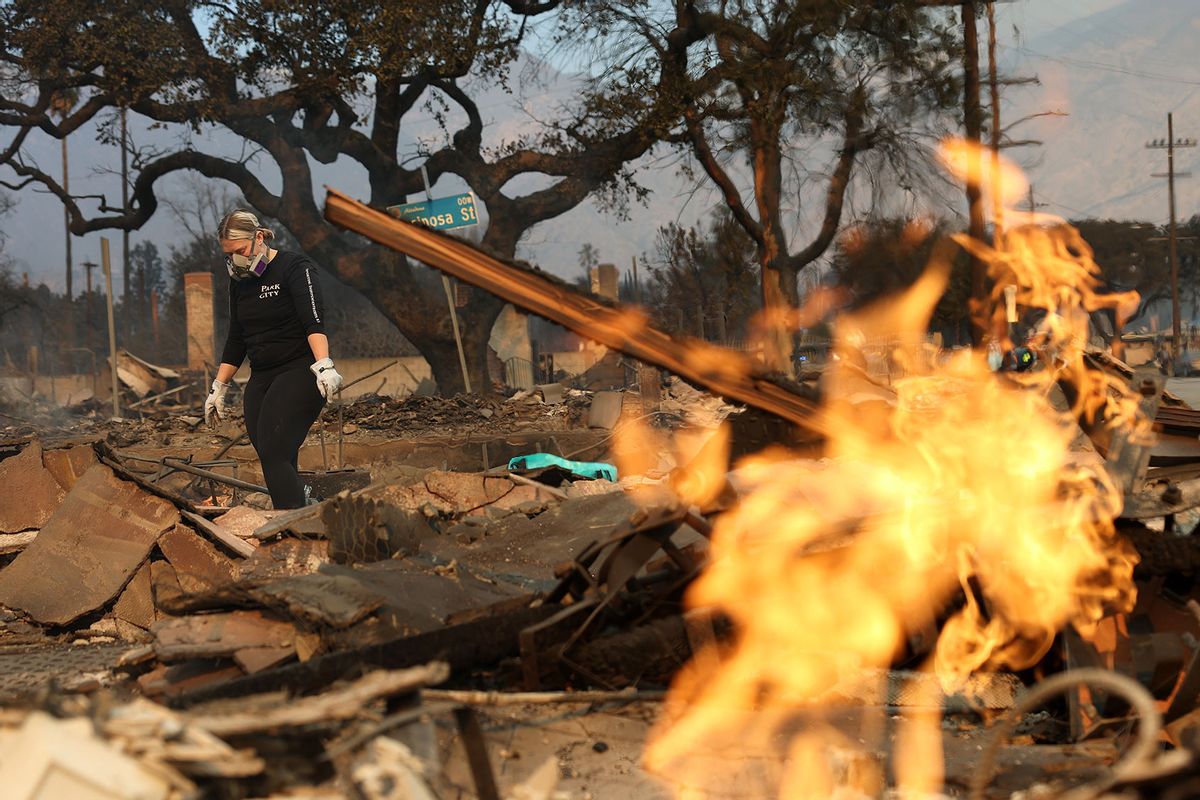Richard Kipling loved his sweet 1926 Spanish-style house in the Altadena area of Los Angeles. “We entertained in that home. We had our children come to visit us in that home. It was home, capital H-O-M-E,” he said.
Kipling and his wife, Alison Sowden, were out of town Jan. 8 when they heard about the Eaton fire and texted their neighbor that morning. By noon, their house had burned to the ground.
To make the sting of losing photos and journals even worse, when Sowden and Kipling called FEMA to receive their initial $770 cash payment for incidentals two days later, they were told someone had already applied for help under their address. They were transferred to the fraud department, where they waited on hold for more than an hour before giving up. They later received their payment and assume the record has been corrected.
Scammers are like cockroaches: You might be able to get rid of some of them, but they’re always out there, lurking in the dark, waiting for the next opportunity.
Disaster scams of all sorts
There are only 4,500 species of cockroaches, but an infinite number of scams.
“We know for sure that there are scammers impersonating FEMA officers and impersonating the Red Cross,” said Steph Carroll, directing attorney for Consumer Rights and Economic Justice for Public Counsel, a nonprofit public-interest law firm in Los Angeles.
We need your help to stay independent
Together, the Palisades and Eaton fires destroyed more than 16,0000 and damaged about 2,000 homes, schools and businesses, leaving residents to compete for services and resources.
One of the first calls displaced people make is to their insurance company — but as in Kipling’s case, someone else may have gotten there first by mining their information, possibly from a data breach, third-party blacklist or by using phishing tactics, said Loretta Worters of the Insurance Information Institute.
The charity scam
Scams can also target those who want to help their neighbors in need. Fr. Marcos Gonzalez of St. Andrew Church in Pasadena says that after the fire, an email soliciting donations went out under Gonzalez’s name — but from an IP address in the United Kingdom.
“Every single priest I know has the same problem because our names, telephone numbers and emails are all very public, and so people can just go on any parish website,” he said.
The church is offering grants for fire victims, but because so many fraudsters try to get a piece of that action, Gonzalez says they only honor in-person requests with ID and a full application.
Generous shoppers might also want to participate in charity offers from companies offering to support relief efforts through sales. Some things that seem questionable might actually be a cause for good.
Life Unplugged, a charity-driven apparel company based in Mount Pleasant, Michigan, created “California Love,” a special line of shirts that supports the Salvation Army’s wildfire recovery work with $40,000+ in donations. Owner Dylan Banagis says they frequently get questions about the veracity of the mission, but giving is part of the company’s DNA. He advised wary consumers to check out customer reviews, social media and items sold by a company. A poor webpage design or scant internet presence are red flags.
And if you’re truly in doubt about where your purchase profits go, you can always donate directly to the organizations you like.
The contractor scam
When the threat of mass deportations collides with a demand to replace and repair nearly thousands of structures all at once, people might be anxious to begin rebuilding — but often, buyers are separated from their cash once they pay the contractor. California law states that contractors can only charge $1,000 or 10% of the project cost for a down payment, whichever is less, but panicked homeowners may skip over that to get going faster.
"If a contractor is unlicensed, there is more risk because they likely haven’t paid for proper insurance"
Atlanta attorney Ted Spaulding advises folks to make sure the contractor they hire is licensed and insured with workers’ comp and general liability — and verify it. “Even licensed contractors can cause problems. If a contractor is unlicensed, there is more risk because they likely haven’t paid for proper insurance and therefore the homeowner could be on the hook if someone gets injured on your property,” he said.
If you've been affected by a disaster
It’s confusing if your insurance company or FEMA is contacting you to get the ball rolling on recovery — it could be legitimate, or maybe not. Rigorous checking in the form of visiting their official websites, searching for the person’s name and number online and checking with a representative you’ve previously worked with are all ways to vet for the truth.
Worters, of the Insurance Information Institute, suggests contacting the National Insurance Crime Bureau if you feel you’ve been taken by an insurance scam.
You may also feel hounded by lawyers who want to set up a lawsuit on your behalf. “You should be dealing with your insurance company, but nobody right now could need a lawyer,” Carroll from Public Counsel said.
Research the attorney, ask people you know for referrals and check the websites of the state bar and the National Association of Consumer Advocates. Don’t sign anything right away without thoroughly understanding the contract. If you feel pressured, walk away.
Kipling and Sowden attended a “public meeting” for fire victims, but it was actually a pitch by law firms to join a class-action suit in which the firm would take 25% of the awards — a discount from their usual 35%. They walked out.
“It comes back to caveat emptor,” Kipling said. “It's a situation most people have never been through before, and hopefully we'll never have to confront again. But it's really pretty dangerous out there.”



Shares